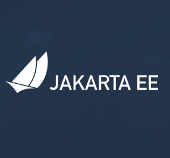| Jakarta EE 11 Modernises Test Kits |
| Written by Kay Ewbank | ||||||
| Thursday, 26 June 2025 | ||||||
|
The Eclipse Foundation has announced the general availability of the Jakarta EE 11 Platform. This release has modernised Test Compatibility Kits (TCKs), and introduces the Jakarta Data specification, along with major updates to the existing specifications. Jakarta EE began life as Java EE (Enterprise Edition), before Oracle donated it to the Eclipse Foundation where it was renamed and relaunched as Jakarta EE in the present open-source family. Jakarta EE is a both a framework and a collection of APIs, with a focus on Web services and distributed systems.
One of the highlights of the new release is the new Jakarta Data specification. This aims to simplify data access and improve developer productivity. To achieve this, the additions start with a built-in repository supertype for performing basic operations on data entities. There's also a CrudRepository that enables basic CRUD (Create Read Update Delete) operations to make database interactions more straightforward and less error-prone. The specification supports both offset and cursor-based pagination. Offset pagination is the more traditional option, works well for smaller datasets that are fairly static, and is easier to use via operators such as Limit and Offset in SQL queries. Cursor-based pagination is best suited for dynamic or very large datasets. It sets a cursor as a marker for retrieving subsequent data, which provides a better performance for datasets that are large and/or that change a lot. The new specification comes with its own query language for specifying the semantics of query methods within Jakarta Data repositories. Jakarta EE 11 also has a modernised TCK framework. Technology Compatibility Kits (TCK) are tests that check am implementation of a Java Specification Request. The updated version of Jakarta's TCK has moved from using Apache Ant and Java Test Harness to JUnit 5 and Apache Maven. It also has a streamlined structure, and the team says the move to a multi-dependency Maven project improves compatibility testing and reduces the barriers to adding new tests as the platform evolves. Jakarta EE 11 supports Java 17 or higher and introduces concurrency enhancements for Java 21, including support for Virtual Threads for improved scalability, reduced overhead, and significant performance gains. Jakarta EE 11 is available now.
More InformationRelated ArticlesJakarta EE Gets Its Own Project Initializer Jakarta vs Spring - The War Goes On The Eclipse Foundation Releases 2023 Jakarta EE Developer Survey Report Eclipse Starter Fills a Longstanding Gap in Jakarta EE To be informed about new articles on I Programmer, sign up for our weekly newsletter, subscribe to the RSS feed and follow us on Facebook or Linkedin.
Comments
or email your comment to: comments@i-programmer.info To be informed about new articles on I Programmer, sign up for our weekly newsletter, subscribe to the RSS feed and follow us on Facebook or Linkedin.
Comments
or email your comment to: comments@i-programmer.info |


